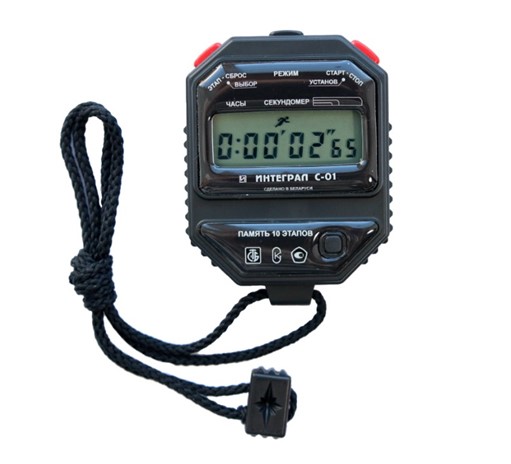"There is help, and we are not afraid of big water." How people live in Polyanovka, cut off from land by floods

Photo is illustrative in nature. From open sources.
Adds
 Rapid tests for fluoroquinolone, erythromycin, lincomycin, tillosin and tilmycosin residues in milk, whey
Rapid tests for fluoroquinolone, erythromycin, lincomycin, tillosin and tilmycosin residues in milk, whey PIONEER MEIZHENG BIO-TECH (5 in1) JC1165 / Rapid tests for the determination of the residual amount of halofuginone, flavomycin, novobiocin, flunixin, dexamethasone / prednisolone in milk, whey
PIONEER MEIZHENG BIO-TECH (5 in1) JC1165 / Rapid tests for the determination of the residual amount of halofuginone, flavomycin, novobiocin, flunixin, dexamethasone / prednisolone in milk, whey
News of the topic "Belarusian Venice", "island" - for the second year in a row Polyanovka in Vetka District has been receiving figurative names, falling under the power of flood. High water completely cuts off the village from the mainland. The road leading to the settlement is hidden under the cold surface of the river - in some places the depth exceeds one and a half meters. And the only way to get to the "island" is by water. OSVOD organized a boat crossing to transport people from Polyanovka to Vetka and back. "We transport a maximum of about 10 people per day. The journey takes about 10 minutes. If there is a lot of cargo, then a little longer," clarifies the head of the Vetka rescue station of OSVOD Sergei Silkin. BELTA correspondents went to the "islanders".
"Since mid-January, we have recorded an increase in the water level of the Sozh and Besed rivers. The maximum water level was on March 4. On that day, high-traffic road equipment was able to pass only once along the Vetka-Polyanovka route, 42 cm arrived in 24 hours. And we took over this route, organizing a boat crossing, since no other equipment could pass," the head of the Vetka rescue station describes the development of the situation.
He clarifies: currently, 25 people live in Polyanovka. Among them, one student, a nurse from a Gomel medical institution, who works daily. The rest are pensioners.
Twice a week, the OSVOD members bring a vendor from a food truck to the village. "If a person needs to go to a medical institution, or needs medication, or needs to go on other business, we transport him to Vetka," clarifies Sergey Silkin. In an emergency, the water patrol is ready to quickly deliver a doctor to the village.
The Gomel Regional Organization of the Belarusian Red Cross is also providing assistance to the "islanders". Volunteers have already delivered a batch of humanitarian aid to the villagers. The kits contain the most essential items. "Cereals, canned goods, hygiene kits. Thank you very much," the Polyanovka residents list with gratitude.
Olga Novikova, a specialist at the regional organization of the Belarusian Red Cross, emphasizes: "The village is now mostly populated by pensioners. We contacted the village executive committee, identified the residents who need help first, and brought food and hygiene products. We also have a supply of blankets and clothes. If people need it, we will definitely help."
"We are not afraid of high water. We are used to it," smiles the village elder, who is respectfully called "the mayor" here, Alexander Frantishev. He is originally from Polyanovka and has lived here for most of his 72 years.
"I went to school in Staroe Selo. And at that time, the big flood came to us every year. Now it's once every ten years. But then, in each yard, we had two boats. We sailed on them. Children went to school, adults went to work," the old-timer recalls."There was one big boat on the collective farm. Milk
from the farm"They carried them on it. If a big flood was coming, they would drive up barges and put them on hold - in case they had to move the cows away. But I don't remember them being taken away," continues Aleksandr Aleksandrovich.
The biggest flood he can remember was in 1970. "The water came straight to the streets and stood under the floors in the houses. But it's still not scary. Our parents survived, so what if we don't survive?" the pensioner asks a rhetorical question.
According to the headman, people's life support during the flood is well-organized - in cooperation with the local authorities, OSVOD, the Ministry of Emergency Situations , and other services.
"Mostly, people call me first, and then I go on. " For example, I write down what someone needs at the mobile shop, call them, leave specific requests so that our saleswoman Snezhana doesn't bring extra stuff by boat," Aleksandr Aleksandrovich takes a list of orders out of his pocket to confirm his words.
"In general, we stock up on everything, we buy in advance. Before the flood. Our refrigerators and cellars are full. Our water is clean. Firewood is prepared. We can easily live for a year on supplies," Aleksandr Mostyka joins the conversation. His family bought a house in Polyanovka 19 years ago. "At first we were summer residents. Then my wife's mother moved here. And now my wife and I are here - we are resting in retirement," the man says.
"The year we bought the house, we got caught in a flood. Then, if the road was washed out, it was only a little - you could walk in boots, and drive an ATV, or a car. There was a big flood in 2013, and then last year. Now this year," the villager lists.
"But we have help in everything. OSVOD organized transportation. There is nothing to be afraid of," a local resident reassures the guests.
Sergey Korolenok agrees with him. "Even last year the water rose higher - by a meter for sure. Now it has only "covered" the beds, the river has come very close to the raspberries, but has not touched them yet," a resident of Polyanovka gives a tour of the farmstead.
The head of the Vetkovskaya OSVOD rescue station specifies: over the past 24 hours the river has receded by 7 cm. "And over the past three days the decline has been 17 cm. According to the analysis that we are conducting on the tributaries of the Sozh River in Krichev and Slavgorod, we see that there has been a decline there, for about a week now. We understand that in about 5-7 days the water level should stabilize, unless the weather suddenly goes to a high positive temperature. "Now at night it's minus, during the day it's slightly plus," Sergei Silkin gives an estimate.
However, the Polyanovites are also prepared for a second wave of flooding.
"The upper reaches of the Sozh River are in the Smolensk region of the Russian Federation. If everything starts to melt actively there at positive temperatures, then we may have a second wave of rising water levels," Sergei Silkin argues.
But the villagers are not afraid of the second wave of high water either. As villager Petr Kovalkov convinces, it is during the flood that one can learn much more about the rich local fauna. "We have beavers swimming here - they come right to our garden on foot, and there are muskrats, and minks, and otters. Roe deer running. Geese flying, landing on the water. And last year, about two hundred swans stopped by our place. It was just the period of their mating dances. The sight is mesmerizing. I wish you could see it too," he intrigued.
"In general, the flood time is ideal for us to enjoy the silence," Alexander Frantishev adds, laughing. "In the summer, it is noisy here - a lot of summer residents, a lot of cars, people coming from the city to relax on the river, to go fishing. And now, for us old people, it is a blessing."
Tamara SUBOTKO,
photo by Sergey KHOLODILIN,
BELTA.
"Since mid-January, we have recorded an increase in the water level of the Sozh and Besed rivers. The maximum water level was on March 4. On that day, high-traffic road equipment was able to pass only once along the Vetka-Polyanovka route, 42 cm arrived in 24 hours. And we took over this route, organizing a boat crossing, since no other equipment could pass," the head of the Vetka rescue station describes the development of the situation.
He clarifies: currently, 25 people live in Polyanovka. Among them, one student, a nurse from a Gomel medical institution, who works daily. The rest are pensioners.
Twice a week, the OSVOD members bring a vendor from a food truck to the village. "If a person needs to go to a medical institution, or needs medication, or needs to go on other business, we transport him to Vetka," clarifies Sergey Silkin. In an emergency, the water patrol is ready to quickly deliver a doctor to the village.
The Gomel Regional Organization of the Belarusian Red Cross is also providing assistance to the "islanders". Volunteers have already delivered a batch of humanitarian aid to the villagers. The kits contain the most essential items. "Cereals, canned goods, hygiene kits. Thank you very much," the Polyanovka residents list with gratitude.
Olga Novikova, a specialist at the regional organization of the Belarusian Red Cross, emphasizes: "The village is now mostly populated by pensioners. We contacted the village executive committee, identified the residents who need help first, and brought food and hygiene products. We also have a supply of blankets and clothes. If people need it, we will definitely help."
"We are not afraid of high water. We are used to it," smiles the village elder, who is respectfully called "the mayor" here, Alexander Frantishev. He is originally from Polyanovka and has lived here for most of his 72 years.
"I went to school in Staroe Selo. And at that time, the big flood came to us every year. Now it's once every ten years. But then, in each yard, we had two boats. We sailed on them. Children went to school, adults went to work," the old-timer recalls."There was one big boat on the collective farm. Milk
from the farm"They carried them on it. If a big flood was coming, they would drive up barges and put them on hold - in case they had to move the cows away. But I don't remember them being taken away," continues Aleksandr Aleksandrovich.
The biggest flood he can remember was in 1970. "The water came straight to the streets and stood under the floors in the houses. But it's still not scary. Our parents survived, so what if we don't survive?" the pensioner asks a rhetorical question.
According to the headman, people's life support during the flood is well-organized - in cooperation with the local authorities, OSVOD, the Ministry of Emergency Situations , and other services.
"Mostly, people call me first, and then I go on. " For example, I write down what someone needs at the mobile shop, call them, leave specific requests so that our saleswoman Snezhana doesn't bring extra stuff by boat," Aleksandr Aleksandrovich takes a list of orders out of his pocket to confirm his words.
"In general, we stock up on everything, we buy in advance. Before the flood. Our refrigerators and cellars are full. Our water is clean. Firewood is prepared. We can easily live for a year on supplies," Aleksandr Mostyka joins the conversation. His family bought a house in Polyanovka 19 years ago. "At first we were summer residents. Then my wife's mother moved here. And now my wife and I are here - we are resting in retirement," the man says.
"The year we bought the house, we got caught in a flood. Then, if the road was washed out, it was only a little - you could walk in boots, and drive an ATV, or a car. There was a big flood in 2013, and then last year. Now this year," the villager lists.
"But we have help in everything. OSVOD organized transportation. There is nothing to be afraid of," a local resident reassures the guests.
Sergey Korolenok agrees with him. "Even last year the water rose higher - by a meter for sure. Now it has only "covered" the beds, the river has come very close to the raspberries, but has not touched them yet," a resident of Polyanovka gives a tour of the farmstead.
The head of the Vetkovskaya OSVOD rescue station specifies: over the past 24 hours the river has receded by 7 cm. "And over the past three days the decline has been 17 cm. According to the analysis that we are conducting on the tributaries of the Sozh River in Krichev and Slavgorod, we see that there has been a decline there, for about a week now. We understand that in about 5-7 days the water level should stabilize, unless the weather suddenly goes to a high positive temperature. "Now at night it's minus, during the day it's slightly plus," Sergei Silkin gives an estimate.
However, the Polyanovites are also prepared for a second wave of flooding.
"The upper reaches of the Sozh River are in the Smolensk region of the Russian Federation. If everything starts to melt actively there at positive temperatures, then we may have a second wave of rising water levels," Sergei Silkin argues.
But the villagers are not afraid of the second wave of high water either. As villager Petr Kovalkov convinces, it is during the flood that one can learn much more about the rich local fauna. "We have beavers swimming here - they come right to our garden on foot, and there are muskrats, and minks, and otters. Roe deer running. Geese flying, landing on the water. And last year, about two hundred swans stopped by our place. It was just the period of their mating dances. The sight is mesmerizing. I wish you could see it too," he intrigued.
"In general, the flood time is ideal for us to enjoy the silence," Alexander Frantishev adds, laughing. "In the summer, it is noisy here - a lot of summer residents, a lot of cars, people coming from the city to relax on the river, to go fishing. And now, for us old people, it is a blessing."
Tamara SUBOTKO,
photo by Sergey KHOLODILIN,
BELTA.
Read together with it:
- Antibiotics in milk: causes and methods of detectionMilk is an essential food, rich in proteins, fats, carbohydrates, vitamins, and minerals. However, its quality can be compromised by the presence of undesirable substances, such as antibiotics. The presence of antibiotic residues in milk raises serious concerns among consumers, as they can lead to allergic reactions, disrupt gut microbiomes, and contribute to the development of antibiotic resistan...
























































